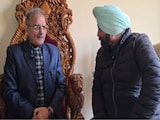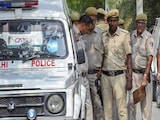Following the rise in dengue cases in Delhi, the Medical Director of Lok Nayak Jai Prakash Hospital (LNJP) said that dengue cases are increasing in the national capital due to prolonged monsoon period and different transmission cycles of mosquitoes.
"There has been a rise in dengue cases due to prolonged monsoon period and different transmission cycles of mosquitoes, which changes every year," Dr Suresh Kumar, Medical Director at LNJP Hospital, Delhi while speaking to ANI said.
The director also said that a total of 15 dengue patients are admitted to the hospital, while the reports of 15 others are awaited.
Earlier on Tuesday, the South Delhi Municipal Corporation (SDMC) said that around 139 dengue cases have been reported in the national capital so far in the month of October only.
According to a report issued by the SDMC for the week ending October 9, a total of 480 cases of dengue have been reported in the national capital so far this year but no dengue-related deaths are reported so far.
Dengue infections are caused by four closely related viruses named DEN-1, DEN-2, DEN-3, and DEN-4. These four viruses are called serotypes because each has different interactions with the antibodies in the human blood serum. The four DENV serotypes mean that it is possible to be infected four times. Dengue season begins post-monsoon and stays till the onset of winter.















